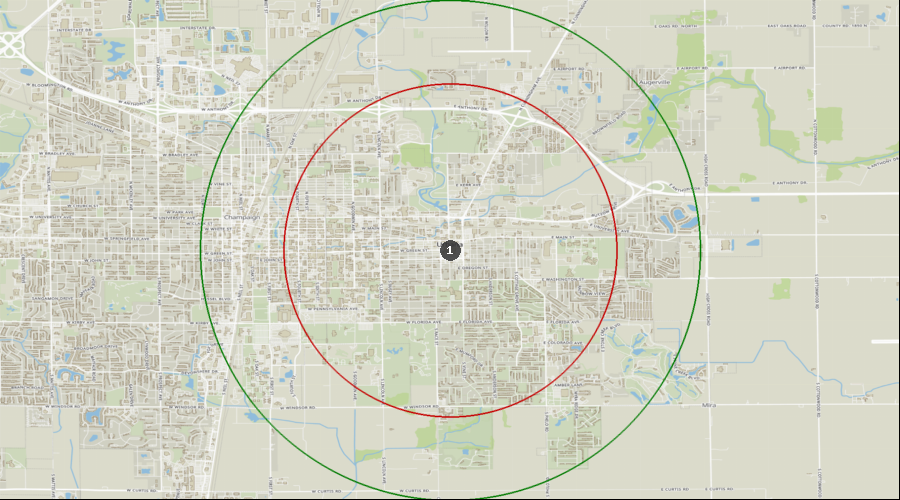| Demographics Characteristics: U.S. Census, County Level Estimates | Champaign County, Illinois | Illinois | United States |
| Population estimates, July 1, 2023, (V2023) | 205,644 | 12,549,689 | 334,914,895 |
| Population estimates base, April 1, 2020, (V2023) | 205,873 | 12,813,469 | 331,464,948 |
| Population, percent change - April 1, 2020 (estimates base) to July 1, 2023, (V2023) | -0.1% | -2.1% | 1.0% |
| Persons under 5 years, percent | 5.0% | 5.3% | 5.5% |
| Persons 65 years and over, percent | 14.5% | 17.6% | 17.7% |
| Median households income (in 2023 dollars), 2019-2023 | $63,091 | $81,702 | $78,538 |
| Per capita income in past 12 months (in 2023 dollars), 2019-2023 | $37,366 | $45,104 | $43,289 |
| Persons in poverty, percent | 16.2% | 11.6% | 11.1% |
| Owner-occupied housing unit rate, 2019-2023 | 53.4% | 66.8% | 65.0% |
| Median value of owner-occupied housing units, 2019-2023 | $205,100 | $250,500 | $303,400 |
| Median Home Value as % of Median Income | 325.1% | 306.6% | 386.3% |
| Persons per household, 2019-2023 | 2.29 | 2.48 | 2.54 |
| Living in the same house 1 year ago, percent of persons age 1 year+ , 2019-2023 | 80.8% | 88.5% | 87.3% |
| Language other than English spoken at home, percent of persons age 5 years+, 2019-2023 | 18.6% | 23.8% | 22.0% |
| Bachelor's degree or higher, percent of persons age 25 years+, 2019-2023 | 46.6% | 37.2% | 35.0% |
| With a disability, under age 65 years, percent, 2019-2023 | 7.6% | 8.0% | 9.1% |
| Persons without health insurance, under age 65 years, percent | 5.7% | 7.3% | 9.5% |


